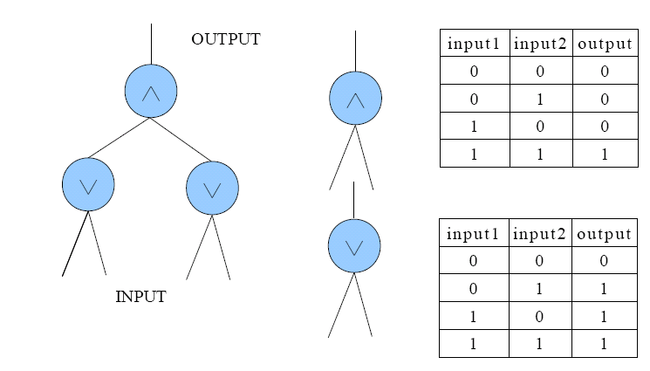- 360前端星计划-动画可以这么玩
马小蜗
动画的基本原理定时器改变对象的属性根据新的属性重新渲染动画functionupdate(context){//更新属性}constticker=newTicker();ticker.tick(update,context);动画的种类1、JavaScript动画操作DOMCanvas2、CSS动画transitionanimation3、SVG动画SMILJS动画的优缺点优点:灵活度、可控性、性能
- ❤️午间能量加油站~360
16b243081175
改变家族命运只有一个字“胆”一、胆量决定财富1、想常人之不敢想,做常人之不敢做2、不拼,怎么知道不行3、有没有勇气走出第一步,往往是人生的分水岭4、人的成功是被冒险逼出来的5、不冒险就是最大的冒险,我们坚决不做老实人6、害怕失败,就等于拒绝成功7、要想知道梨子的味道,就要亲口尝一尝二、机会青睐于果断(果断法则)1、一个有魅力的人,必定毫不犹豫,说到做到2、你一旦拖延,你就总是会拖延3、当你做了不属
- mysql 隐秘后门_【技术分享】CVE-2016-5483:利用mysqldump备份可生成后门
Toby Dai
mysql隐秘后门
预估稿费:100RMB投稿方式:发送邮件至linwei#360.cn,或登陆网页版在线投稿前言mysqldump是用来创建MySQL数据库逻辑备份的一个常用工具。它在默认配置下可以生成一个.sql文件,其中包含创建/删除表和插入数据等。在导入转储文件的时候,攻击者可以通过制造恶意表名来实现任意SQL语句查询和shell命令执行的目的。另一个与之相关的漏洞利用场景可以参考。攻击场景攻击者已经能够访问
- 2022-09-30
AustinPup
景气指数:0.3波动率-=-=-=-=-=-=-=rank收益弹压最值1/6宝盈盈润纯债0.4006242y:4.24w:-0.01m:0.27d:0.02弹:-0.10+:0.89-:0.8-:0.01+:0.04A:4.02/6诺德安鸿纯债0.36010440y:3.55w:-0.01m:0.29d:0.0弹:+0.02+:0.88-:0.9-:0.01+:0.04A:4.03/6华富恒盛纯债
- Html Day01
所以你一定要努力
一、HTML与Web标准1.1五大浏览器厂商以及浏览器内核浏览器内核备注ChromeBlinkBlink其实是WebKit的分支。在WebKit上二次开发IETridentIE、猎豹安全、360极速浏览器、百度浏览器SafariWebkit从Safari推出之时起,它的渲染引擎就是Webkit。FirefoxGecko使用不多。打开速度慢、升级频繁。OperaBlink现在跟随chrome用bli
- 作业
冯天乐
这周的作业好多呀,我都快崩溃了。本来以为两个小时就能写完的,可是我却写了一天。这么多作业,可不是一般人能承受的了。所以以后的作业都要分开做,要不然就会有压力的。我感觉老师的压力肯定比我们还要大,因为我们写3份卷子老师就要改180份卷子。180份卷子,按改一份卷子20分钟,也要3600分钟呀。3600分钟等于60小时,60小时等于两天半。两天半里面还要有一半的的时间休息,算下来也要好长时间。事实证明
- Livox_Mid360+IMU仿真搭建
夜雨拾年
无人机
前言本文是对在gazebo里搭建一个livoxmid360+惯导仿真平台测试FAST-LIO2的实现,此博文中存在部分需要修改代码的地方,因此在本文中做出更详细的说明。资源包安装注:由于livox点云的格式是CustomMsg,而rviz中主要使用PointCloud和PointCloud2,转换不太方便,因此不使用官方提供的软件包,使用他人修改后的软件包。但此软件包开发时间较早,缺少mid360
- 基于XTDrone的ZD550+Mid360实现
夜雨拾年
无人机
前言本文是对ZD550搭载Mid360激光雷达Gazebo仿真平台搭建记录的实现文件导入先下载提供的文件链接:https://pan.baidu.com/s/1reqGCcQOj1T_tGBY3EZWpw?pwd=328c提取码:328c将文件夹ZD550_Mid360中的5个文件夹都添加到PX4_Firmware/Tools/sitl_gazebo/models目录下,其中models目录下可能
- XTDrone+ZD550+Livox_Mid360+IMU仿真实现
夜雨拾年
无人机
简介本文是前两篇博客Livox_Mid360+IMU仿真搭建、基于XTDrone的ZD550+Mid360实现的结合,将ZD550与Livox_Mid360+IMU结合,从原有的xacro文件转为sdf文件,更适合gazebo仿真的实现。最终效果DIY若想实现对激光雷达参数的修改,可参考以下部分标签内部的元素详细定义了Gazebo中使用的雷达传感器的扫描特性和性能。这些设置影响雷达模拟的准确性和效
- 从MVC到DDD的架构演进
洛蕾
计算机mvc架构
Python微信订餐小程序课程视频https://edu.csdn.net/course/detail/36074Python实战量化交易理财系统https://edu.csdn.net/course/detail/35475DDD这几年越来越火,资料也很多,大部分的资料都偏向于理论介绍,有给出的代码与传统MVC的三层架构差异较大,再加上大量的新概念很容易让初学者望而却步。本文从MVC架构角度来讲
- 糟糕的一天
小龙虾是我
昨天和今天真的是像过山车一样,昨天在顶端,今天在低谷。昨天联系的客户意向度都非常强,而且聊得特别好,今天电话没接的没接,挂断的挂断,要么就是态度来了个360度的转变。我的心情有点郁闷。都有点开始怀疑我自己的能力了,也许每个销售都有经历过这样的一个阶段吧,但愿这个阶段能够短暂一点。今天被工作上的不顺影响了心情,晚上有个客户联系我聊了将近一个小时,结果我的日更就没什么时间来写了。混乱中写了这一篇,质量
- AI学习笔记:pdf-document-layout-analysis
hillstream3
人工智能学习笔记pdfAI编程nlp
一直在学AI,但没有连续的时间来尝试。现在终于失业了,有大把连续的时间来动手。之前准备了一台I5-1400F+RTX360012G的电脑,现在终于派上用场了。由于一直在从事无线通信相关的工作,所以,拿到一份很长的AI可能与通信在哪些方面,能够结合的pdf文档。所以,打算从这份文档开始入手。第一个找到的项目的是这个:https://huggingface.co/HURIDOCS/pdf-docume
- 如何设计黄金8年的个人成长路径
多元化思维小山
—导读:如何设计黄金8年的个人成长路径1.宏观指引-锁定大方向不动摇关注单位时间价值+主动定价权(提升个人单位时间并拥有主动定价权,直至你可以挤身同龄阶段人群的top10%-20%)小山的时间价值:36000元/年;3000元/月;100元/日;6.25元/时判断:是否有主动定价权:无(通过出售单份时间来获取收入)单位时间价值是直线增长还是曲线增长:直线增长,但不稳定性,或工作年限越长,直线下降。
- Tecplot 360 EX 2020 R2 2020安装教程
微新功重好A酷君
Tecplot3602020是一款由美国Tecplot公司推出的专业CFD/CAE可视化数据分析软件,同时也是也系列软件目前最新的版本,文章教大家如何对tecplot360进行安装激活。存在Pytecplotlicensehasexpired过期显示问题,其他功能没问题,介意勿下!!!操作系统:windows文件获取关键字:tecplot安装教程1.双击运行下载的tecplot安装包,按下图勾选点
- 成人电话手表品牌排行榜,电话手表哪个牌子的好
测评君高省
电话手表排行榜根据各大平台销量、口碑、评价等数据,甄选出了十佳儿童电话手表排名:其中360防水定位儿童电话手表、阿巴町远程拍照儿童电话手表以及360儿童电话手表8X,综合排序位居前三名,而其他产品也同样优秀买电话手表上高省领隐藏优惠券,优惠券真的大,佣金真的高,我们真的省!大家好,我是高省APP最大团队,高省APP,是2021年推出的平台,0投资,0风险、高省APP佣金更高,模式更好,终端用户不流
- 2020-04-21
静静小站
公司:温州维力弹簧五金有限公司【日精进打卡第302天】【知~学习】《六项精进》1遍共114遍《大学》1遍共114遍《京瓷哲学》有言实行【经典词句】不占便宜,是一种大格局一、修身:(对自己个人)以作为人何为正确作为判断事物的标准二、齐家:(对家庭和家人)陪女儿考试做早餐同儿子视频三.建功安排下单订外加工螺丝客户报价回访客户{积善}:发愿从2019年4月15日起10年,3600善事。今日1善,累计13
- 复盘我的2022
李楠lucia
今天是12月29日,还有三天就是2023年。2022年即将过去了,相信大家都会记得这个独特的一年。这一年,我们经历了最萧条的经济环境,做了最多的核酸检测,孩子们上了最长时间的网课。即使是多年以后,我们也都会记得,在这一年我们经历了什么。回首自己的2022,过去的360多个日子,在大脑中就像放电影一样,一幕一幕浮现在眼前。这一年,有欢喜,有忧伤,有失落,有希望,有奋发,每一个过去的日子,也像沙粒一样
- 纪念纳兰性德的5首诗 赵书成
赵书成
纪念纳兰性德的五首诗词赵书成菩萨蛮·贺中华诗词学会纳兰祖地行诗词研讨会胜利闭幕2014.8.30中华文化无疏别,源流久远如明月。万古一根絲,千年同四时!史诗磨练得,传唱山难隔。叶赫起新潮,纳兰词未消。注:刊《长白山诗词》2014年第6期。菩萨蛮.纳兰性德诞辰360周年纪2014.5.27纳兰性德词名著,清朝第一时人慕。显赫出身荣,兴衰难尽评!词名追后主,骑射承关羽。虽则早遭殇,文坛尊位长!注:刊〈
- php工程师绩效考核表_如何对程序员绩效考核?
weixin_39637233
php工程师绩效考核表
如何对程序员绩效考核?1、什么是绩效考核?来在百度百科的解释,绩效考核(performanceexamine),是企业绩效管理中的一个环节,是指考核主体对照工作目标和绩效标准,采用科学的考核方式,评定员工的工作任务完成情况、员工的工作职责履行程度和员工的发展情况,并且将评定结果反馈给员工的过程。常见绩效考核方法包括BSC、KPI及360度考核等。绩效考核是一项系统工程。2、绩效考核是否有用?对企业
- 如何从评论中成长
番茄冲鸭
①于人——“广”而问之询问你亲密的朋友们、亲爱的家人们、尊敬的领导们、崇敬的偶像们等……②于问题——360°全方位访谈别人眼中的我是什么样的?会用什么词来形容我?我最棒的天赋是?我应该努力培养哪些人拥有的某种品质……③于态度——对诚实答案的渴求郑重和他们表明自己的态度以及为什么想知道反馈的原因,让对方能够给予你更好的答案。④于方式——灵活择取面对面的访谈更容易获得较好的答案,有不清楚的地方也可以实
- 中医上高血压的治疗
HYT婷婷
高血压解决方案:刮痧或直接艾炙百汇穴、颈部三带刮后再艾炙。用木艾饼,艾炙仪:360、随身炙、眼鼻炙通通适用。刮痧仪:美容仪和砭石神器都适用。家里亲戚高血压我最方便快捷办法:每日木艾饼用脚炙仪即可。
- usbserver工程师手记(四)ft2usbhub服务启动不了
c++代码诗人
usbserver工程师手记linux服务器
技术支持:可能他用360扫描或者驱动精灵的时候,把驱动给卸载了客户:老师确定下原因,用户那面着急用电脑了技术支持向日葵远程登录......技术支持:卸载客户端,重新安装一下就可以客户:我们要确定问题的原因那客户:用户那面允许我们继续排查客户领导:需要确定影响原因,不能是:可能、应该客户领导:有些杀毒软件是可以看到被加入杀毒软件黑名单/被杀毒软件被删除的文件我们的服务理念:客户的问题就是我们的问题.
- 幸福成功日记2023-02-18(第246天)
Wendy如意芳霏
对我工作提效,读书的回报率要有真正的回报,应用。而不是读了也白读。理解自己喜欢读书的原因。连续早起天数:1222天打卡早睡打卡天数:1028天打卡累计天数:8/73/1222/1028日期:2023.2.18周六坐标:上海日出:6:37日落:17:40天气:晴气温:7-14℃,空气质量指数47(优)东北风起床:5:05就寝:22:55(×)【360天目标】4个90天1.完成佛法课的学习和认证。2.
- ctfshow web入门 ssrf web351~web360
kikkeve
ctfshowphpweb安全安全
目录SSRF基础web351web352、353web354web355web356web357web358web359web360SSRF基础SSRF(Server-SideRequestForgery:服务器端请求伪造)就是让服务器去请求服务器的资源,因为我们远程请求不到。curl_init():初始curl会话curl_setopt():会话设置curl_exec():执行curl会话,获取
- 《群书治要360》诚信
东方隐喻
君子养心,莫善于诚。致诚无他,唯仁之孚,唯义之行。诚心孚仁则能化;诚心行义则能变。变化代兴,谓之天德。(卷三十八孙卿子)【白话】君子修养心性,没有比真诚更好的了。要做到至诚,不在其他,唯有信孚仁德,实践道义。本此至诚之心以孚仁,则能正己以教化百姓;本此至诚之心以行义,则能改变风俗使之去恶。以仁义教化百姓,使迁善改过形成风俗,即所谓与天却德。
- 每日复盘 Day360
明明安安好
3月14号复盘早起✅5:21完成每天三目标1.古筝✅2.听音频课✅3.完成第二周作业✅每日复盘向目标人物学习刚听了名师训练营易珉老师的第3讲:未来领导者的领导力深度修炼。金句摘录:1.信不信任他人,是表现自己自信的一方面。2.做决策是时候,也是要冒风险,要有承担的。3.你重复地说,坚持地说,不厌其烦地说,是对别人造成影响的。易珉老师说,领导力要从孩子抓起,让他学会承担,学会冒风险,做一个汉子,培养
- 端午作业
关若飞
效果html代码Polo360首页HOMEBacktohomePRODUCTSWhatwehaveforyouSERVICESThingswedoBLOGFollowourupdatesCONTAVTWaystoreachusLoremipsumdolorsitamet,constecteturadipisicingslitPerfectLogicAllyouwantyourwebsitetoso
- 我的第一个《21天目标管理》总结
吴秀芳
时间过的好快,我的第一个21天目标管理时间很快到了。对于过去的21天,我的收获和成长很大。我一共列出10项内容:1、微课一节完成2、直播一次完成3、一张360未完成(3张)后改为读《读大学》,读了3天忘了4、链接10人未完成,最多8人,最少05、给儿子热情完成6、健身20分钟未完成(10天)7、敷面膜未完成(连续10天)8、未完成(18天)9、画画完成10、不玩纸牌完成统计结果:完成50%,未完成
- 真正的沟通建立在同理心上
何不可
这是菡萏萏的第432篇7:26-7:33用时7分钟字数360为什么总是不太能够做到拥有同理心,或者总是在沟通上没办法到点上,那是因为没有抓住一点,没有完全的站在对方的角度和位置去情景演练过。如果你在那个位置你会怎么说,是不是对方所做的那些事情都变得可以理解并且甚至乎能够体谅到哪些地方最能够打动或者说牵动对方。真正站在对方的立场也是需要一定的准备工作的,提前去了解对方那边的情况,发生了什么,事情的经
- 《钝感力》| 钝感是一种沉默但有力的回击力
夏小半的江湖
2018年浙江省离婚大数据显示,有35%的离婚原因都是生活琐事。其实婚姻的破裂并没有那么多狗血剧情,最多的都是生活中的小摩擦。其实对于婚姻来说,最需要的就是钝感力,面对另一半的一些小缺点和小错误,不要太敏感,不要过分在意,生活就会变得开心许多。不光是婚姻,在我们生活的方方面面,都需要一些钝感力,来帮助我们和这个复杂的世界友好相处。360的周鸿祎也曾经说过,人在年轻的时候,还是应该迟钝一点,让自己的
- JVM StackMapTable 属性的作用及理解
lijingyao8206
jvm字节码Class文件StackMapTable
在Java 6版本之后JVM引入了栈图(Stack Map Table)概念。为了提高验证过程的效率,在字节码规范中添加了Stack Map Table属性,以下简称栈图,其方法的code属性中存储了局部变量和操作数的类型验证以及字节码的偏移量。也就是一个method需要且仅对应一个Stack Map Table。在Java 7版
- 回调函数调用方法
百合不是茶
java
最近在看大神写的代码时,.发现其中使用了很多的回调 ,以前只是在学习的时候经常用到 ,现在写个笔记 记录一下
代码很简单:
MainDemo :调用方法 得到方法的返回结果
- [时间机器]制造时间机器需要一些材料
comsci
制造
根据我的计算和推测,要完全实现制造一台时间机器,需要某些我们这个世界不存在的物质
和材料...
甚至可以这样说,这种材料和物质,我们在反应堆中也无法获得......
- 开口埋怨不如闭口做事
邓集海
邓集海 做人 做事 工作
“开口埋怨,不如闭口做事。”不是名人名言,而是一个普通父亲对儿子的训导。但是,因为这句训导,这位普通父亲却造就了一个名人儿子。这位普通父亲造就的名人儿子,叫张明正。 张明正出身贫寒,读书时成绩差,常挨老师批评。高中毕业,张明正连普通大学的分数线都没上。高考成绩出来后,平时开口怨这怨那的张明正,不从自身找原因,而是不停地埋怨自己家庭条件不好、埋怨父母没有给他创造良好的学习环境。
- jQuery插件开发全解析,类级别与对象级别开发
IT独行者
jquery开发插件 函数
jQuery插件的开发包括两种: 一种是类级别的插件开发,即给
jQuery添加新的全局函数,相当于给
jQuery类本身添加方法。
jQuery的全局函数就是属于
jQuery命名空间的函数,另一种是对象级别的插件开发,即给
jQuery对象添加方法。下面就两种函数的开发做详细的说明。
1
、类级别的插件开发 类级别的插件开发最直接的理解就是给jQuer
- Rome解析Rss
413277409
Rome解析Rss
import java.net.URL;
import java.util.List;
import org.junit.Test;
import com.sun.syndication.feed.synd.SyndCategory;
import com.sun.syndication.feed.synd.S
- RSA加密解密
无量
加密解密rsa
RSA加密解密代码
代码有待整理
package com.tongbanjie.commons.util;
import java.security.Key;
import java.security.KeyFactory;
import java.security.KeyPair;
import java.security.KeyPairGenerat
- linux 软件安装遇到的问题
aichenglong
linux遇到的问题ftp
1 ftp配置中遇到的问题
500 OOPS: cannot change directory
出现该问题的原因:是SELinux安装机制的问题.只要disable SELinux就可以了
修改方法:1 修改/etc/selinux/config 中SELINUX=disabled
2 source /etc
- 面试心得
alafqq
面试
最近面试了好几家公司。记录下;
支付宝,面试我的人胖胖的,看着人挺好的;博彦外包的职位,面试失败;
阿里金融,面试官人也挺和善,只不过我让他吐血了。。。
由于印象比较深,记录下;
1,自我介绍
2,说下八种基本类型;(算上string。楼主才答了3种,哈哈,string其实不是基本类型,是引用类型)
3,什么是包装类,包装类的优点;
4,平时看过什么书?NND,什么书都没看过。。照样
- java的多态性探讨
百合不是茶
java
java的多态性是指main方法在调用属性的时候类可以对这一属性做出反应的情况
//package 1;
class A{
public void test(){
System.out.println("A");
}
}
class D extends A{
public void test(){
S
- 网络编程基础篇之JavaScript-学习笔记
bijian1013
JavaScript
1.documentWrite
<html>
<head>
<script language="JavaScript">
document.write("这是电脑网络学校");
document.close();
</script>
</h
- 探索JUnit4扩展:深入Rule
bijian1013
JUnitRule单元测试
本文将进一步探究Rule的应用,展示如何使用Rule来替代@BeforeClass,@AfterClass,@Before和@After的功能。
在上一篇中提到,可以使用Rule替代现有的大部分Runner扩展,而且也不提倡对Runner中的withBefores(),withAfte
- [CSS]CSS浮动十五条规则
bit1129
css
这些浮动规则,主要是参考CSS权威指南关于浮动规则的总结,然后添加一些简单的例子以验证和理解这些规则。
1. 所有的页面元素都可以浮动 2. 一个元素浮动后,会成为块级元素,比如<span>,a, strong等都会变成块级元素 3.一个元素左浮动,会向最近的块级父元素的左上角移动,直到浮动元素的左外边界碰到块级父元素的左内边界;如果这个块级父元素已经有浮动元素停靠了
- 【Kafka六】Kafka Producer和Consumer多Broker、多Partition场景
bit1129
partition
0.Kafka服务器配置
3个broker
1个topic,6个partition,副本因子是2
2个consumer,每个consumer三个线程并发读取
1. Producer
package kafka.examples.multibrokers.producers;
import java.util.Properties;
import java.util.
- zabbix_agentd.conf配置文件详解
ronin47
zabbix 配置文件
Aliaskey的别名,例如 Alias=ttlsa.userid:vfs.file.regexp[/etc/passwd,^ttlsa:.:([0-9]+),,,,\1], 或者ttlsa的用户ID。你可以使用key:vfs.file.regexp[/etc/passwd,^ttlsa:.: ([0-9]+),,,,\1],也可以使用ttlsa.userid。备注: 别名不能重复,但是可以有多个
- java--19.用矩阵求Fibonacci数列的第N项
bylijinnan
fibonacci
参考了网上的思路,写了个Java版的:
public class Fibonacci {
final static int[] A={1,1,1,0};
public static void main(String[] args) {
int n=7;
for(int i=0;i<=n;i++){
int f=fibonac
- Netty源码学习-LengthFieldBasedFrameDecoder
bylijinnan
javanetty
先看看LengthFieldBasedFrameDecoder的官方API
http://docs.jboss.org/netty/3.1/api/org/jboss/netty/handler/codec/frame/LengthFieldBasedFrameDecoder.html
API举例说明了LengthFieldBasedFrameDecoder的解析机制,如下:
实
- AES加密解密
chicony
加密解密
AES加解密算法,使用Base64做转码以及辅助加密:
package com.wintv.common;
import javax.crypto.Cipher;
import javax.crypto.spec.IvParameterSpec;
import javax.crypto.spec.SecretKeySpec;
import sun.misc.BASE64Decod
- 文件编码格式转换
ctrain
编码格式
package com.test;
import java.io.File;
import java.io.FileInputStream;
import java.io.FileOutputStream;
import java.io.IOException;
import java.io.InputStream;
import java.io.OutputStream;
- mysql 在linux客户端插入数据中文乱码
daizj
mysql中文乱码
1、查看系统客户端,数据库,连接层的编码
查看方法: http://daizj.iteye.com/blog/2174993
进入mysql,通过如下命令查看数据库编码方式: mysql> show variables like 'character_set_%'; +--------------------------+------
- 好代码是廉价的代码
dcj3sjt126com
程序员读书
长久以来我一直主张:好代码是廉价的代码。
当我跟做开发的同事说出这话时,他们的第一反应是一种惊愕,然后是将近一个星期的嘲笑,把它当作一个笑话来讲。 当他们走近看我的表情、知道我是认真的时,才收敛一点。
当最初的惊愕消退后,他们会用一些这样的话来反驳: “好代码不廉价,好代码是采用经过数十年计算机科学研究和积累得出的最佳实践设计模式和方法论建立起来的精心制作的程序代码。”
我只
- Android网络请求库——android-async-http
dcj3sjt126com
android
在iOS开发中有大名鼎鼎的ASIHttpRequest库,用来处理网络请求操作,今天要介绍的是一个在Android上同样强大的网络请求库android-async-http,目前非常火的应用Instagram和Pinterest的Android版就是用的这个网络请求库。这个网络请求库是基于Apache HttpClient库之上的一个异步网络请求处理库,网络处理均基于Android的非UI线程,通
- ORACLE 复习笔记之SQL语句的优化
eksliang
SQL优化Oracle sql语句优化SQL语句的优化
转载请出自出处:http://eksliang.iteye.com/blog/2097999
SQL语句的优化总结如下
sql语句的优化可以按照如下六个步骤进行:
合理使用索引
避免或者简化排序
消除对大表的扫描
避免复杂的通配符匹配
调整子查询的性能
EXISTS和IN运算符
下面我就按照上面这六个步骤分别进行总结:
- 浅析:Android 嵌套滑动机制(NestedScrolling)
gg163
android移动开发滑动机制嵌套
谷歌在发布安卓 Lollipop版本之后,为了更好的用户体验,Google为Android的滑动机制提供了NestedScrolling特性
NestedScrolling的特性可以体现在哪里呢?<!--[if !supportLineBreakNewLine]--><!--[endif]-->
比如你使用了Toolbar,下面一个ScrollView,向上滚
- 使用hovertree菜单作为后台导航
hvt
JavaScriptjquery.nethovertreeasp.net
hovertree是一个jquery菜单插件,官方网址:http://keleyi.com/jq/hovertree/ ,可以登录该网址体验效果。
0.1.3版本:http://keleyi.com/jq/hovertree/demo/demo.0.1.3.htm
hovertree插件包含文件:
http://keleyi.com/jq/hovertree/css
- SVG 教程 (二)矩形
天梯梦
svg
SVG <rect> SVG Shapes
SVG有一些预定义的形状元素,可被开发者使用和操作:
矩形 <rect>
圆形 <circle>
椭圆 <ellipse>
线 <line>
折线 <polyline>
多边形 <polygon>
路径 <path>
- 一个简单的队列
luyulong
java数据结构队列
public class MyQueue {
private long[] arr;
private int front;
private int end;
// 有效数据的大小
private int elements;
public MyQueue() {
arr = new long[10];
elements = 0;
front
- 基础数据结构和算法九:Binary Search Tree
sunwinner
Algorithm
A binary search tree (BST) is a binary tree where each node has a Comparable key (and an associated value) and satisfies the restriction that the key in any node is larger than the keys in all
- 项目出现的一些问题和体会
Steven-Walker
DAOWebservlet
第一篇博客不知道要写点什么,就先来点近阶段的感悟吧。
这几天学了servlet和数据库等知识,就参照老方的视频写了一个简单的增删改查的,完成了最简单的一些功能,使用了三层架构。
dao层完成的是对数据库具体的功能实现,service层调用了dao层的实现方法,具体对servlet提供支持。
&
- 高手问答:Java老A带你全面提升Java单兵作战能力!
ITeye管理员
java
本期特邀《Java特种兵》作者:谢宇,CSDN论坛ID: xieyuooo 针对JAVA问题给予大家解答,欢迎网友积极提问,与专家一起讨论!
作者简介:
淘宝网资深Java工程师,CSDN超人气博主,人称“胖哥”。
CSDN博客地址:
http://blog.csdn.net/xieyuooo
作者在进入大学前是一个不折不扣的计算机白痴,曾经被人笑话过不懂鼠标是什么,
